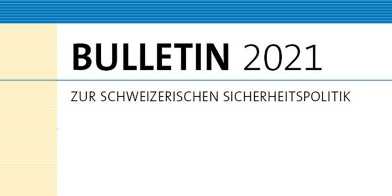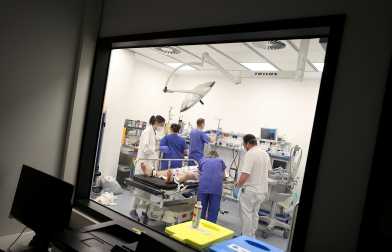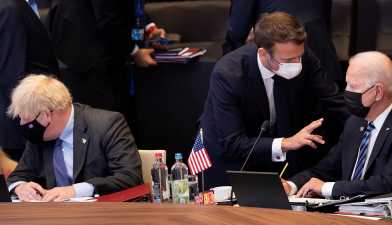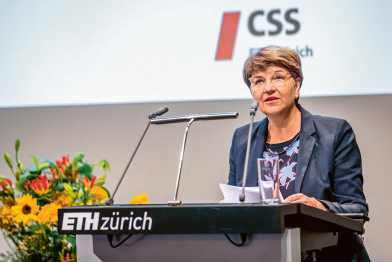2021
Europe: Greater Autonomy, Better Allies

Europe’s greater strategic autonomy alone will not provide European security, argues Dominika Kunertova in this CSS Policy Perspective. The Sino-American rivalry is an opportunity for Europe to boost its conventional defense capabilities while galvanizing the transatlantic partnership with a new Chinese dimension.
Bulletin 2021 on Swiss Security Policy

This year’s Bulletin on Swiss Security Policy starts with an interview with Federal Councilor Viola Amherd. In the following five contributions, our authors address the opportunities for Switzerland through a seat on the UN Security Council, a basis for the debate on a general compulsory military service, Switzerland as a co-creator of the digital space, challenges and opportunities for the OSCE due to changing multilateralism, and international stability and the security of digital products.
Governance Approaches to the Security of Digital Products - A Comparative Analysis

CSS' Nele Achten’s report for the Geneva Dialogue of Responsible Behavior in Cyberspace provides an overview of public policies around the security of digital products. It summarizes the challenges that public policymakers are frequently facing in this context and the solutions that have been adopted. It also elaborates how the relatively new policy area of digital product security can be distinguished from cybersecurity regulations around critical infrastructure protection and data security.
The Law of Neutrality in Cyberspace

This CSS Cyberdefense Report by Sean Cordey and Kevin Kohler provides a historical and technological background to neutrality and a breakdown of the legal debates regarding the application of the law of neutrality in cyberspace.
Regulating Cybersecurity in the Health Care Sector

During the COVID-19 pandemic, awareness about vulnerabilities in the health care sector increased. Experts from governments, civil society, and industry called for more cybersecurity regulation that clarifies responsibilities and expectations. Regulation is one answer, but some issues require other policy solutions, such as further international cooperation, argues Nele Achten in this CSS Analysis.
Microchips: Small and Demanded

The interplay of a pandemic, extreme weather events and geopolitical power dynamics have exposed the fragile networks underpinning the semiconductor industry. Because microchips are almost indispensable in daily life, the current shortage situation raises questions about supply chain security, argues Julian Kamasa in this CSS Analysis.
Sicherheitspolitische Trends 2022–2030: Grossmächtekonflikt und Technologiewettbewerb

Every year, the CSS analyzes developments in world politics and their potential consequences for Switzerland over the next eight years. This year, we focus on great-power conflicts and technology competition.
The Role of Value Systems in Conflict Resolution

Understanding, “right-sizing,” and adequately respecting the role of value systems in conflict transformation avoids both over- and under-emphasis. It aims at a better understanding of the interplay between tangible conflict issues and religious or secular value systems, argue Abbas Aroua, Jean-Nicolas Bitter and Simon J. A. Mason in this CSS Policy Perspective.
Redesigning Nuclear Arms Control for New Realities

Nuclear arms control is more needed than ever. Building an arms control architecture that is fit for today’s security challenges requires a coherent, innovative, and long-term political strategy. A coordinated transatlantic approach for such a strategy is necessary to help redesign nuclear arms control for new realities, argue Anna Péczeli, Brad Roberts, Jonas Schneider, Adam Thomson, Oliver Thränert, and Heather Williams in this CSS Policy Perspective Special Edition.
Swiss security policy in an unstable world

During her visit to ETH Zurich, Defence Minister Viola Amherd sketched a picture of an unstable, unpredictable world to which Swiss security policy must adapt. ETH Zurich and EPFL make an important contribution to the security of Switzerland by training specialist personnel and facilitating knowledge transfer.